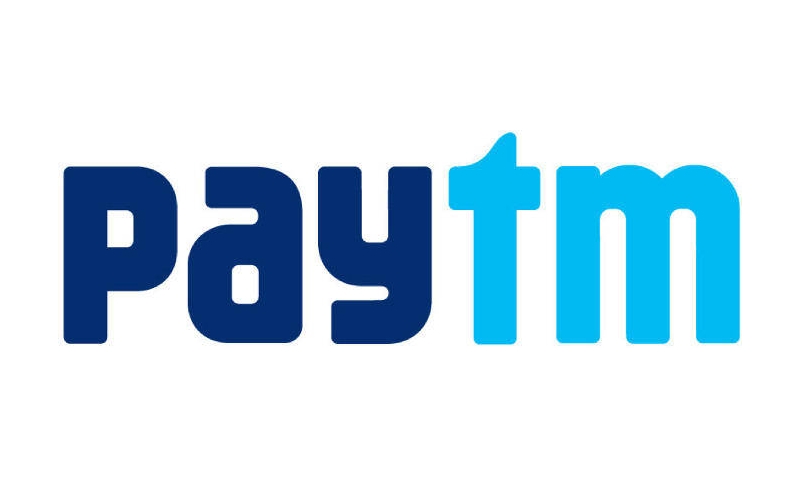Paytm is one of the most well-known brands in India, particularly in the post-demonetization period. In the years after demonetization, the payments platform has grown at a breakneck pace. And it's for this reason that the company's IPO, India's largest ever, had everyone's eyes fixed to the stock market.
The IPO, however, made news not for the amount of money collected, but for the dramatic drop in share price during trading on the Bombay Stock Exchange (BSE) on November 18.
The offer price was Rs 2,150, but the shares were trading at 1,614 rupees each by the afternoon. The stock even dropped below the lower circuit limit of 1,564 rupees. When a stock reaches this level, the BSE bans investor purchases to that level or above.
What went wrong?
In India's online payments business, Paytm is the big fish. SoftBank and Ant Group are among its supporters, as are other major corporations with huge wallets. In India, the third-largest economy in Asia and a major worldwide market, the brand is well-known.
So, what went wrong with Paytm's first public offering?
"Paytm's financials aren't very outstanding, and the business's growth possibilities are restricted... clearly, the company lacks a clear road to profitability," LightStream Research analyst Shifara Samsudeen told Reuters.
Despite the fact that Paytm's $2.5 billion offering was placed at the top of the suggested range, demand was lower than previous recent stock offerings, owing to Paytm's market share loss to Google and Flipkart's PhonePe. The firm lost 3.82 billion rupees ($51.5 million) in the quarter ended in June, compared to 2.84 billion rupees in the same time the previous year. It secured $1.1 billion from institutional investors, and it got $2.64 billion in bids for the remaining shares on sale last week, representing a 1.89-fold oversubscription.
The stock's disastrous launch was seen by many market players as an indication that investors had become disillusioned with a recent run of IPOs with inflated values. Reuters reported Aequitas Research director Sumeet Singh as stating, "Most of the domestic institutional investors seem to have bypassed the IPO." He said that the stock was being sold at 27 times enterprise value/gross profit for fiscal 2024, which was higher than Zomato Ltd's 21.3 times and Sea Ltd's 23 times.
He also said that Ant and SoftBank have reduced their stakes in the IPO. Ant cut its investment from 28 percent to 23 percent, while SoftBank's Vision Fund cut its interest from 16 percent to 16 percent. According to Mumbai-based financial consultant Sandip Sabharwal, Paytm's IPO might put a stop to "obnoxious pricing in IPO markets." Reuters reported about him.
One97 Communications, the parent firm of India's biggest digital payments startup, debuted on Indian stock exchanges today to mixed reviews (Nov. 18). From the offering price of Rs2,150, its share price plummeted by up to 26% to 1,603.92 rupees ($21.62) in the morning. Although it recovered marginally later, it remained at a 9 percent discount. The shares ended today at Rs1,564, down more than 27%.
Paytm has led the country's digital payments industry, notably after the demonetisation operation in 2016. It is backed by numerous worldwide marquee investors. While the first public offering had all the makings of a blockbuster, the shares were only 1.89 times oversubscribed—2.79 times by skilled investors and 1.6 times by average investors.
From the start, there were several red flags on the offer. Paytm's issues were constantly on display.
Analysts highlighted the business's exorbitant values for a corporation that had not produced a profit for the previous eight years. Paytm merely cut costs this fiscal year, resulting in a much smaller loss of Rs1,596 crore compared to the previous year. Profitability, on the other hand, is still a long way off. Furthermore, the corporation has stretched itself too thin over the years, branching into sectors like as payments, financial services, travel, and movie tickets, as well as fantasy sports and e-commerce. This, too, did not provide the expected results. "Paytm's dabbling in various business lines prevents it from becoming a category leader in any area except wallets, which are becoming irrelevant as UPI payments take off... As a result, we have concerns about its capacity to attain scale while being profitable," stated Macquarie Research in a letter to investors. Competitors with substantial pockets, such as Google Pay and Walmart-owned Flipkart's PhonePe, offered further obstacles.
What should you do if you've been given Paytm shares?
Investors who have been assigned Paytm shares should record losses and quit, according to stock market experts. They suggested more promising choices for anyone looking to add a fintech company to their portfolio. "Holding this stock isn't going to benefit you." Investors will not be able to exit at a greater price if the listing is poor. A K Prabhakar, head of research at IDBI Capital, told the Business Standard newspaper, "Book a loss now and get out of the stock." One97 Communications was given a "underperform" rating by Macquarie Research ahead of its IPO today, citing a lack of concentration and direction in the company's business plan. Competition, according to the brokerage business, is expected to stifle medium-term development. "Paytm can't generate substantial money as a distributor until it lends," it claimed in a study.
Paytm's response to the IPO fiasco
Vijay Shekhar Sharma, the founder and CEO of Paytm, who was obviously sobbing with excitement during the opening ceremony at the commencement of trade, kept a brave face later in the day. "A single day does not determine our destiny," he told Reuters. "It's a novel business model, and it requires a lot of effort to comprehend it plainly... we have a lot to offer the markets and market players."
A person familiar with the subject told Reuters in July that Paytm aims to break even by late next year or early 2023, despite the fact that the business declared in its prospectus that it anticipated to lose money for the foreseeable future.



Comments
Post a Comment